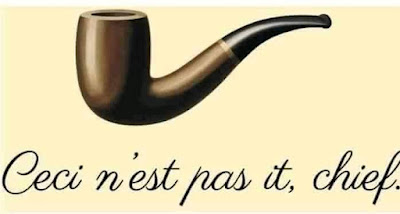Interweb Show and Tell (It's Back!) and The Beginning of Some of Kind of Essay/Preachy Rambling
Well, there's this interview with Joan Houlihan in the Contemporary Poetry Review about criticism. Some highlights:
...I see my own criticism as that of an ideal reader if we think of that reader as someone who: 1. Loves the art of poetry itself, not just individual poems; 2. Is well-read (and not just in poetry); 3. Meets the poem on its own terms, that is, without prejudice as to its form, content, style and unfolding; 4. Enjoys being intellectually and emotionally challenged; 5. Is drawn to mystery but put off by obscurity; 6. Is thrilled by masterful writing of any kind, that is, by the way a line is constructed, how it moves, word choice, syntactical grace; 7. Likes to learn something new (in craft or content); 8. Wants to be at least as engaged in a poem as in a successful magic act...
—there’s not enough vigorous weeding. Ideally, the weeding should be done by the educated reader, the customer who buys and reads the books, and not the critics per se, but readers are not being educated very well about poetry through poetry criticism or reviews or even, I have to add, by poetry teachers ...
... what the ideal reader and critic should do: take the work on its own terms, apart from how you feel about the author. A difficult standard to meet, but one every reader and critic must strive to meet, including me.
I suspect, through my experience with former teachers and conversations with friends, and yes, even when examining my own (limited) critical practice, that #4 is the most difficult to reach. It's exceedingly difficult to leave our prejudice at the door when we read poems, particularly with regard to form and style.
I consider my own critical ear and eye to be lacking -- like, too often I'm not following enough of the criteria above, or at least not following some of those criteria closely enough -- so then I just end up "liking" (or at least, not hating -- tolerating?) the work of some poets because I'm not reading it, and considering it, with enough discretion. I'm a lot like my Labrador that way -- I like everyone and everything. (Nothing is bad! Everybody's good! Feed me!)
But I really loathe -- as in, have a gut-reaction, really emotional, intuitive response to -- the critical eye that refuses the idea of excellence being more broad and more expansive than that established previously by . . . well, a bunch of people locked into the past. I don't see the point in attempting to be a contemporary poet if you're not willing to read and find something not only redeeming -- but worth aspiring to -- in the work of other contemporary poets.
So I guess I'm talking about the Poet-Critic here, not just the Critic -- although A.P. brought up Helen Vendler recently when we were at a bookstore (remember those?) and I rolled my eyes (mostly because he'd just been teasing me by bad-mouthing a current it-girl in poetry he hadn't read, simply to get my ire up). My experience with Helen Vendler (albeit very limited) gives me the impression that she's myopic, and my own prejudice against her kind of vision (which I read as safe, and a little solipsistic) has prevented me from worshipping at her altar -- which is kind of a shame, namely because she's inspiring in me the kind of reaction that I despise, the kind of reaction I'm accusing her of, and also because she's one of the few -- no, maybe she's the only -- contemporary female lit critic that one can name.
Anyway, that's more than I'd intended to write today, thinking I'd just re-post some of the pieces on the web I found interesting and thought-provoking. As it is, I think I'll just re-post this one for now. And it's really the first time I've tried to work out in writing, even briefly, my fascination/hatred of criticism -- I know the value in criticism, and I know I should read it more, and more of it, but too often I think the critic ignores what I think is a truly valuable (and maybe the best tenet) of evaluating poetry: does the poem give us pleasure?
And by pleasure I mean, does the reader feel satisfaction or gratification after reading the poem? And maybe a lot of contemporary poetry doesn't live up to that tenet. But I think that if we're not open to finding satisfaction and gratification in the first place -- because, perhaps, satisfaction and gratification is somehow a sign of intellectual languor or slackness, or displays too much willingness to be agreeable or supportive (as if being agreeable or supportive were a character flaw), or if we're determined to be restless because we see some kind of value in restlessness -- we're cheating ourselves as readers and as writers, and ultimately as whole, living, breathing, thinking persons.
So those are my thoughts for now. I'm sure I'll revisit this topic in the future, and perhaps by then I'll have a completely different opinion about criticism in general -- particularly after I've read more of it and develop a more informed opinion. (Perhaps I'll become a huge Vendler devotee!) But I think it helps to begin one's exploration of a topic knowing where one stands at the outset -- so, for now, here is where I stand.


Comments